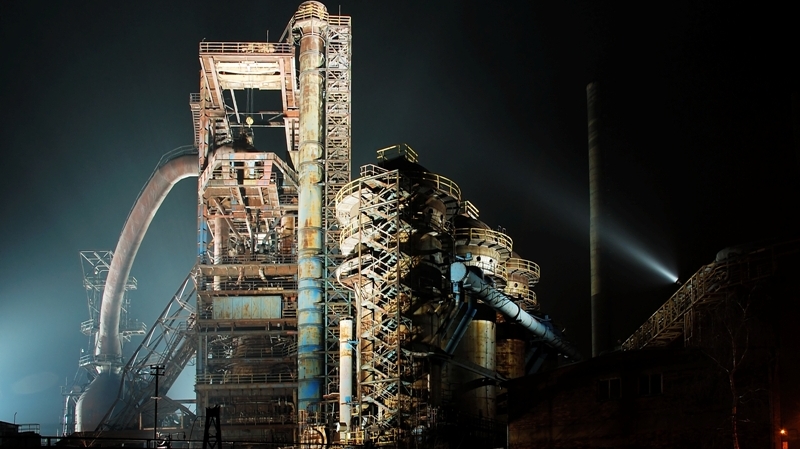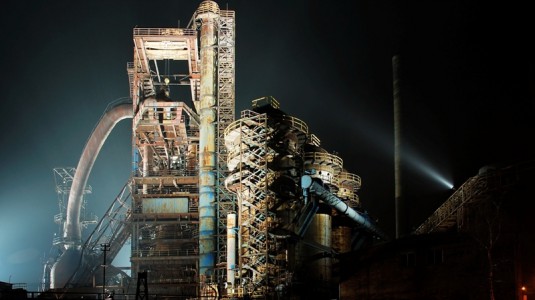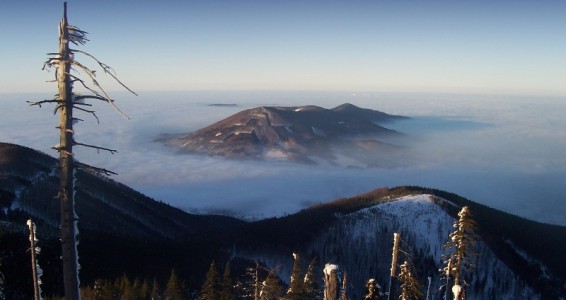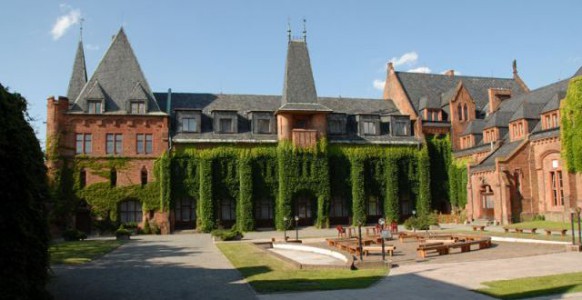Interest in establishing regional film offices is growing in the Czech Republic. Such institutions are common in most developed countries. The Czech Republic, however, is served only by a single national film office: the Czech Film Commission.
The first film offices began appearing 50 years ago in the United States. Today there are more than 300 film offices worldwide, all seeking to attract film and audiovisual activities to their territories.
In the Czech Republic, the CzechTourism agency is cooperating with the Czech Film Commission to support the development of regional film offices. CzechTourism is constantly looking for new ways to attract more tourists to the Czech Republic and its regions. In discussion with Czech Film Commission director Ludmila Claussová, the agency agreed to pursue opportunities to support tourism through film. International studies show that targeted marketing activities can increase tourist visits to film locations 50 to 300 percent.
Lucie Radová, CzechTourism manager of trends and innovations, presented her agency’s vision at the Finále Plzeň film festival (April 22–28, 2012). She pointed out, among others, the benefits film production can bring to regions: “Film represents an unique opportunity to present a certain area, its culture and tradition,” Radová said. “We want to support selected films and TV shows and thereby emphasize the role of location, cultural and historical links in these stories.”
CzechTourism is prepared to help filmmakers, for example, with financial subsidies for accommodation or transport when filming in the regions. In the past the agency has supported the Czech Film Commission’s location tours of regions. “We organize location tours to help producers, location managers and other film professionals discover attractive or and lesser-known areas in our country,” Claussová said.
The Czech Film Commission has already organized location tours in Plzeň, Ostrava and in subterranean locations in Prague. These tours and subsequent consultations with the Czech Film Commission inspired representatives of some regional institutions to establish film offices and appeal to domestic as well as foreign producers.
Representatives from these regions accepted invitations to a discussion on regional support of film production at Finále Plzeň. At the festival, film commissioners from Poland, Monika Głowacka from the Lodz Film Commission and Rafal Bubnicki from Lower Silesia Film Fund shared their experiences. “Regional film commissions are common all over the world,” Glowacka said. “In Poland, they were established several years before the Polish national film office.”
Film offices are already being prepared in Ostrava, Eastern Bohemia and Jeseníky. “Ostrava offers exceptional industrial locations, unique architecture built in the Socialist-Realist style, and workers colonies dating from the late 19th and early 20th centuries,” said Hana Cívelová, from the City of Ostrava department for economic development. “We are preparing a new web site aimed at filmmakers, Cívelová said. In the meantime, she said, “filmmakers can come to us anytime with questions or, better yet, with specific requests. We can help them scout locations, organize location scoutings, negotiate with owners and managers of locations, and coordinate discussions with local offices and police. We can also assist with applications for film permits.”
And what can Eastern Bohemia offer filmmakers, apart from being just two hours from Prague? “The friendliness of the inhabitants, who are proud when there is filming where they live, will definitely surprise filmmakers,” said Alena Horáková, director of the Eastern Bohemia Destination Agency. The Pardubice region is very film-friendly and has hosted the production of many film and TV projects, Horáková said. Pardubice and the surrounding area hosted production of director Jiří Strach’s films Ďáblova lest and Operace Silver A. Director Jaroslav Brabec filmed his Krvavý román in the Litomyšl area. František Filip’s TV series Dobrá voda shot near Pardubice and drew on the region’s horseracing tradition. This heritage will be the focus of an upcoming location tour that Horáková’s office is preparing with the Czech Film Commission.
“You can find romantic secluded spots in small towns in our region as well as pristine nature, mountains and lowlands, not to mention many interesting technical monuments,” Horáková continued. “We have knowledge of the region and contacts for film crews at our finger tips.” The Jeseníky region has long been a popular location for Czech films, including several based motifs by author Vladimír Körner as well as Alois Nebel, from director Tomáš Luňák, which saw its premiere at the Venice International Film Festival in 2011. “Thanks to this film, we are now the Alois Nebel region,” said Barbora Haušková, public relations manager for the Jeseníky Tourism Association. “Working with this theme, we are connecting tourism to the film to create a product that guides our visitors to the story of the film.”
The Czech Film Commission will continue to cooperate with CzechTourism to support the development of regional film offices and publish updates about their activities.




